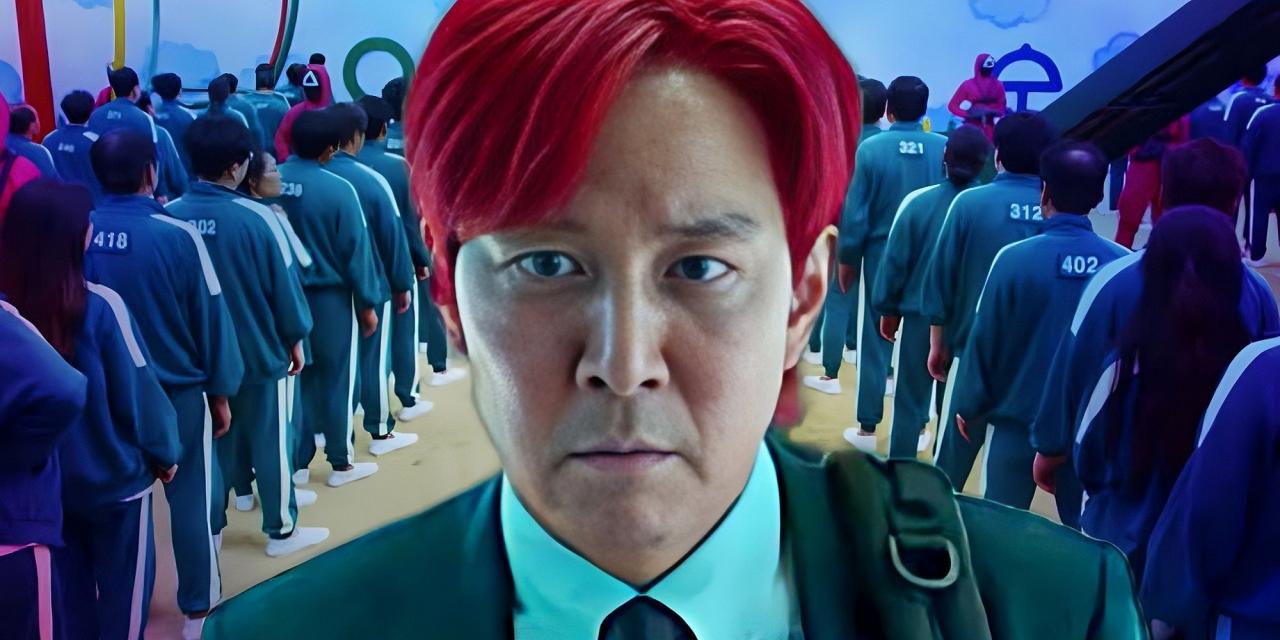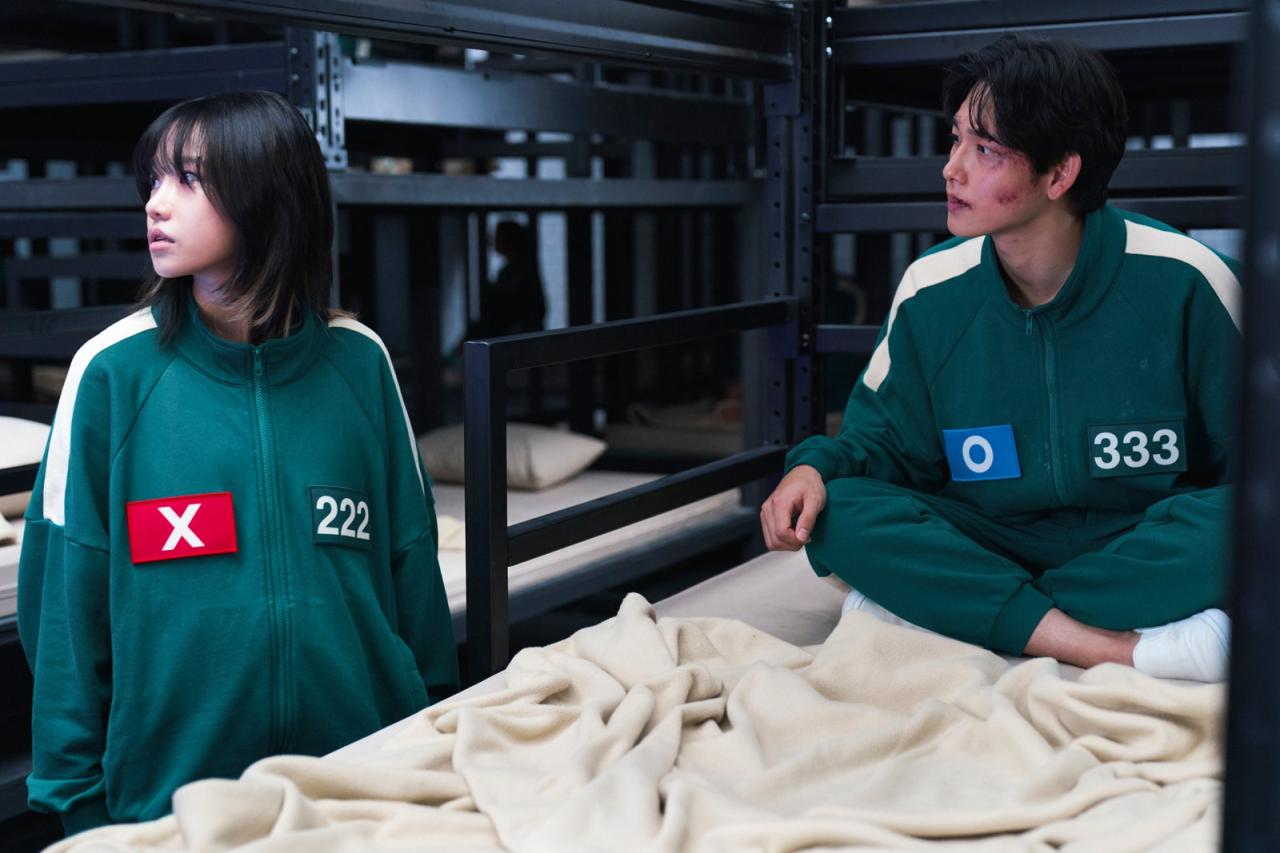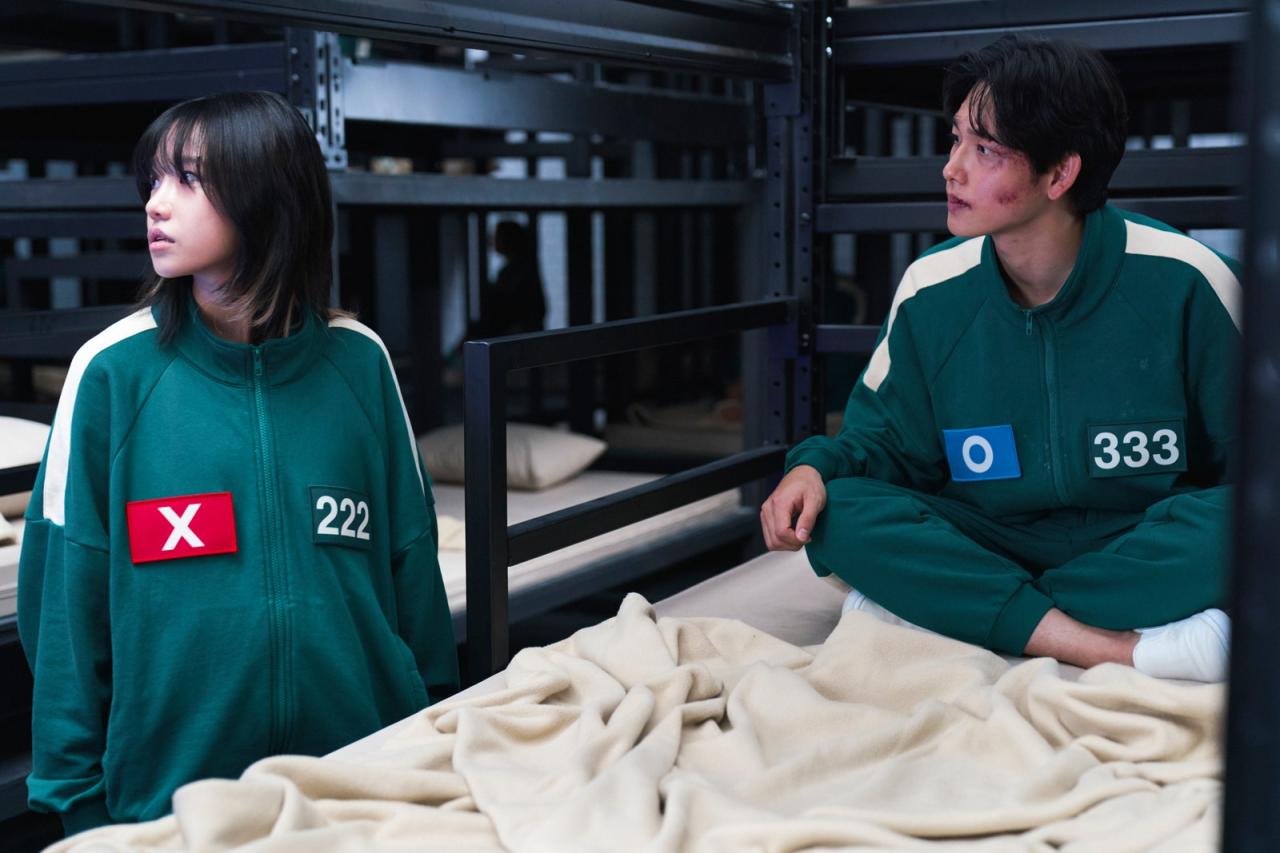Squid Game season 2 ending is shrouded in mystery, leaving fans buzzing with speculation. This analysis dives deep into the finale’s key moments, exploring the fates of pivotal characters like Player 001 and Gi-hun, deciphering the Front Man’s complex motivations, and examining the symbolic weight of the games themselves. We’ll unpack the lingering questions and explore potential interpretations of the ambiguous conclusion, leaving no stone unturned in our quest to understand the show’s final act.
We’ll unpack the symbolism of Gi-hun’s decision, the VIPs’ influence, and the visual storytelling that made the season so compelling. Get ready to revisit the unsettling world of Squid Game and delve into the fascinating details that shaped its dramatic conclusion. We’ll also consider potential plot points for a future season, based on the lingering questions and unresolved conflicts.
Player 001’s Fate and its Implications
The death of Player 001, Oh Il-nam, the seemingly frail elderly man, serves as a pivotal point in Squid Game‘s narrative. His actions, motivations, and ultimate demise significantly impact the story’s central themes and propel Gi-hun’s arc.
Okay, so Squid Game season 2’s ending left us with a bunch of unanswered questions, right? We’re all dying to know what happens next, but first, we need to figure out when we can even expect answers. Check out this link to find out when is season 3 of squid game because honestly, the wait for season 3 is almost as torturous as the games themselves! Then we can finally dive into discussing that crazy season 2 finale.
Player 001’s Final Actions and Their Significance
Player 001’s decision to participate in the deadly games, despite his terminal illness, is not driven by desperation for money, but rather a twisted desire to experience the thrill and excitement one last time before death. His seemingly kind demeanor masks a darker truth; he is the mastermind behind the entire operation. His final act of choosing Gi-hun as the winner isn’t an act of mercy but a calculated move, ensuring the continuation of the games.
Foreshadowing of Player 001’s Role
Throughout the season, subtle hints foreshadow Player 001’s true identity. His seemingly innocent questions and observations about the other players are actually a way of assessing their vulnerabilities and motivations. His calm demeanor and insightful comments subtly hint at his superior understanding of the game’s dynamics. The recurring motif of the marbles game, symbolizing fate and choice, mirrors Player 001’s own manipulation of fate.
Impact of Player 001’s Death on Gi-hun’s Journey
Player 001’s death is a catalyst for Gi-hun’s transformation. Witnessing the true extent of the games’ cruelty and discovering the mastermind’s identity forces Gi-hun to confront the moral implications of his own actions and choices. The revelation shatters his initial sense of hope and fuels his determination to expose the truth behind the games.
Comparison of Player 001’s and the VIPs’ Motivations

While the VIPs are driven by a sadistic desire for entertainment and the thrill of watching others suffer, Player 001’s motivations are more complex. He isn’t solely driven by cruelty, but also by a profound existential weariness and a desire to observe human nature under extreme pressure. His actions, however, ultimately align with the VIPs’ goal of perpetuating the games, making him a disturbingly effective architect of the deadly spectacle.
Gi-hun’s Decision and Future Actions
Gi-hun’s final moments in the first season are fraught with emotional turmoil. His decision to board the plane is a critical turning point that sets the stage for potential conflicts in future seasons.
Gi-hun’s Emotional State
At the end of the season, Gi-hun is consumed by a mix of grief, guilt, and a burning desire for revenge. He is haunted by the memories of the fallen players and the horrifying reality of the games. The loss of his friend, Sang-woo, particularly weighs heavily on his conscience.
Interpretation of Gi-hun’s Decision to Board the Plane
Gi-hun’s decision to board the plane can be interpreted as a sign of his commitment to dismantling the games. He might be seeking out the organizers, or perhaps he’s trying to infiltrate the organization from within to understand its inner workings and bring down its operations. The plane represents a journey into the heart of darkness and his determination to confront the system that caused so much suffering.
Okay, so Squid Game season 2’s ending left us with a bunch of unanswered questions, right? We’re all dying to know what happens next, but before we dive into theories, you might be wondering, “when is squid game season 6?” Check out this link to get some (possibly unreliable) info on that: when is squid game season 6.
Seriously though, let’s talk about that shocking twist in the season 2 finale – was that really the end of Gi-hun’s journey?
Symbolism of the Plane’s Destination

The plane’s destination remains ambiguous, adding to the suspense and anticipation for the next season. It represents an unknown future, filled with both potential dangers and the possibility of justice. The journey symbolizes Gi-hun’s transformation from a victim to an active participant in the fight against the games.
Potential Consequences of Gi-hun’s Choice
Gi-hun’s actions could lead to a direct confrontation with the organizers, a complex infiltration mission, or a long and arduous process of uncovering the truth and bringing the perpetrators to justice. His choice sets the stage for a potentially violent and morally ambiguous conflict.
The Front Man’s Identity and Relationship with Gi-hun: Squid Game Season 2 Ending
The Front Man’s identity as Hwang Jun-ho’s brother and his complex relationship with Gi-hun form a crucial aspect of the show’s narrative.
Emotional Complexities of the Front Man, Squid game season 2 ending
The Front Man is a deeply conflicted character. His position as the overseer of the games is juxtaposed with his evident emotional distress and past trauma. He is haunted by his past and his relationship with his brother, which adds layers of complexity to his motivations.
The Front Man’s Motivations and Past Experiences
Driven by a combination of guilt, ambition, and a desire to atone for past mistakes, the Front Man has dedicated himself to maintaining the games’ operation. His past relationship with Gi-hun adds a layer of personal investment to his role, creating a deeply intertwined dynamic.
Dynamic Between the Front Man and Gi-hun
The relationship between the Front Man and Gi-hun is one of intense conflict and unexpected connections. Gi-hun’s past encounters with the Front Man as a player add layers of personal significance to their confrontation. This dynamic could lead to a complex power struggle or a surprising alliance.
The Front Man’s Relationship with Player 001
The Front Man’s relationship with Player 001 is one of loyalty and obedience, perhaps even a sense of begrudging respect. Player 001’s role as the mastermind and the Front Man’s commitment to upholding the games suggest a hierarchical relationship built on trust and shared goals, though possibly also influenced by coercion or manipulation.
The VIPs and their Influence on the Games
The VIPs, a group of wealthy and powerful individuals, are the driving force behind the games. Their motivations and actions shape the narrative and the players’ experiences.
Organization of the VIPs by Motivation and Power Dynamics
The VIPs can be categorized based on their individual motivations, ranging from pure sadistic pleasure to a desire for social commentary or simply the thrill of gambling. Their power dynamics are complex, with some VIPs holding more influence than others based on their wealth, social status, or connections within the organization.
Extent of the VIPs’ Influence
The VIPs exert significant control over the games’ design, execution, and even the selection of players. Their influence extends to every aspect of the operation, from the creation of the games themselves to the manipulation of the players’ emotional states.
VIPs’ Contribution to the Overall Narrative
The VIPs represent the corrupting influence of wealth and power, highlighting the ethical dilemmas of unchecked capitalism and the dehumanizing effects of extreme wealth disparity. Their presence underscores the larger social commentary woven into the show’s narrative.
Characteristics and Roles of Each VIP
| VIP Name | Motivation | Power Dynamics | Role in the Games |
|---|---|---|---|
| VIP 1 (Example) | Sadistic pleasure, thrill of the hunt | High influence, significant financial contribution | Active participant in game design and player selection |
| VIP 2 (Example) | Social commentary, anthropological interest | Moderate influence, intellectual contribution | Observer, providing strategic input |
| VIP 3 (Example) | Gambling, high-stakes wagering | Low influence, primarily financial contributor | Passive observer, primarily focused on the outcome |
| VIP 4 (Example) | Political leverage, maintaining power | High influence, strategic connections | Oversees logistical aspects of the operation |
The Games and their Symbolic Meaning

The games in Squid Game are not merely violent contests; they are carefully designed to test the players’ physical and psychological limits, revealing their true natures and motivations. Each game carries symbolic weight, contributing to the show’s overarching themes.
Symbolism Behind Each Game
Each game – Red Light, Green Light, Honeycomb, Tug-of-War, Marbles, Glass Bridge, and Squid Game – represents a different aspect of human nature, from childhood innocence to cutthroat competition and the ultimate struggle for survival. They symbolize societal pressures, moral compromises, and the dehumanizing effects of extreme competition.
Comparison of Games’ Design and Psychological Impact
The games are progressively more complex and psychologically challenging. The early games, such as Red Light, Green Light, tap into childhood memories and create a false sense of security. Later games, like the Marbles game, force players to betray their allies and confront their deepest fears. This escalating complexity mirrors the players’ descent into desperation and moral compromise.
Evolution of the Games’ Complexity
The games’ complexity increases throughout the season, reflecting the players’ growing desperation and the escalating stakes. The early games are relatively simple, but the later games require strategy, teamwork, and ruthless decision-making, forcing players to make impossible choices.
Potential Future Games and Their Implications
Future games could explore even more complex themes of morality, trust, and survival. They could involve more intricate psychological manipulation, or perhaps even incorporate elements of technology or advanced weaponry, pushing the boundaries of the games’ brutality and complexity.
Okay, so Squid Game season 2’s ending is everyone’s big question right now. Will Gi-hun finally take down the VIPs? I’ve been seeing a lot of theories online, and it’s making me crazy! I even took a break to check out some completely unrelated stuff, like this thread on south korean plane crash reddit , before getting back to theorizing about the next season.
Seriously though, what do you think will happen to Gi-hun?
Visual Elements and their Narrative Significance
The visual elements of Squid Game are meticulously crafted to enhance the narrative’s impact and create a specific emotional response in the viewer.
Use of Color and Lighting
The vibrant colors of the games’ sets are juxtaposed with the muted tones of the players’ impoverished lives, creating a stark contrast that underscores the disparity between wealth and poverty. The lighting is used to highlight key moments, creating dramatic tension and emphasizing the players’ emotional states.
Significance of Recurring Visual Motifs and Symbols
Recurring visual motifs, such as the doll in Red Light, Green Light, and the honeycomb patterns, carry symbolic weight, representing childhood innocence, societal pressure, and the players’ desperate struggle for survival. These symbols contribute to the show’s overall thematic resonance.
Impact of Specific Visual Sequences on the Viewer’s Emotional Response
Specific visual sequences, such as the slow-motion shots of players falling during the Glass Bridge game, are used to create a visceral emotional response in the viewer. These moments emphasize the brutality and consequences of the games, amplifying the narrative’s impact.
Descriptive Narrative Focusing on a Specific Scene
The final scene where Gi-hun confronts the Front Man on the beach is visually striking. The stark contrast between the vibrant colors of the game sets and the muted tones of the beach creates a sense of disillusionment. Gi-hun’s bloody hand against the backdrop of the setting sun emphasizes the lasting impact of the games and the weight of his moral dilemma.
The distant, ominous sound of the games continuing in the background emphasizes the unending cycle of violence and suffering.
End of Discussion
The ending of Squid Game season 2 leaves us with more questions than answers, intentionally blurring the lines between hope and despair. While Gi-hun’s ultimate choice remains open to interpretation, the underlying themes of social inequality, desperation, and the human cost of greed remain powerfully resonant. The lingering mysteries and unresolved relationships ensure the show’s legacy will continue to be debated and analyzed long after the credits roll.
The stage is set for a thrilling continuation, and we eagerly await what the next chapter holds.
Answers to Common Questions
Will there be a Squid Game Season 3?
Netflix hasn’t officially confirmed a Season 3, but the open ending strongly suggests the possibility.
What happened to the other players who survived?
Their fates are left ambiguous, leaving room for speculation and potential future storylines.
What is the significance of the plane’s destination?
The destination is intentionally vague, adding to the mystery and fueling theories about Gi-hun’s future actions.
What was Player 001’s ultimate goal?
He aimed to expose the games’ cruelty and the corrupt VIPs, ultimately sacrificing himself to achieve this.
